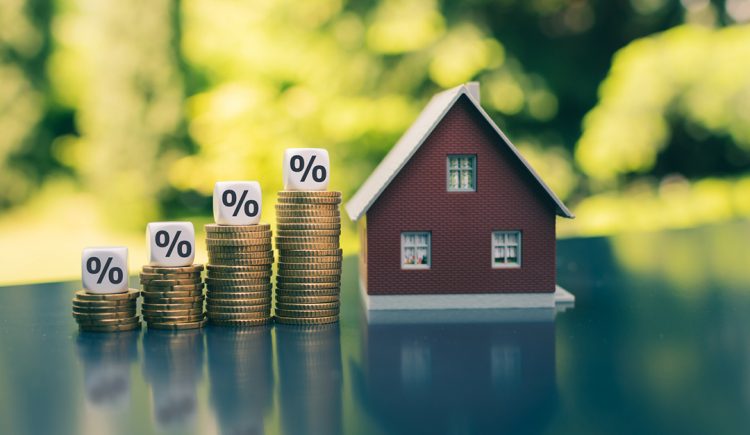The sun doesn’t appear to be setting on the bustling housing market, even as mortgage rates continue to rise.
The gradual increase in 30-year fixed mortgage rates and a slight dip in mortgage applications may have initially worried some ahead of the spring home-selling market. Rates rose to over 3% in early March, breaking an almost year-long decline during the pandemic that resulted in record lows.
Still, industry experts say the market activity isn’t showing signs of stopping anytime soon.
“For this upcoming spring buying season, this year will be notably higher than last year with maybe even up to 40% or 50% more home sales this year versus last year,” says Lawrence Yun, chief economist for the National Association of REALTORS®.
Ongoing vaccinations and another stimulus package may catalyze further job growth and confidence in the market, but it will also lead to a continued increase in rates, according to Yun.
“The home-sales market will experience countervailing forces of the higher push from more jobs, but also the pullback of higher mortgage rates. We will have to wait to see which force will be stronger,” he said in a recently released February employment report.
According to Yun, mortgage rates could hover around 3.1% during spring and top out at roughly 3.3% by the year’s end.
Affordability
Rate increases could create affordability issues for some buyers, particularly in coastal markets like California, where high home prices are leading buyers to migrate to more affordable areas.
“Whenever you have an increase in interest rates, of course with an increase in price, generally it will affect the affordability,” says Oscar Wei, deputy chief economist, California Association of REALTORS®. “It will hurt affordability with rates rising by 50 basis points, and it will increase the monthly mortgage payments.”
According to Melissa Jimenez of California, the gradual increase in rates coupled with pricey inventory is already inching toward pricing some buyers out of the market.
Her agency represents buyers and sellers in San Francisco and the neighboring Central Valley, which has become a destination for buyers looking to escape metro-area home prices.
“We see a lot of people migrating out to what we called the valley… because home prices were so affordable,” Jimenez says.
She says some first-time homebuyers are looking to make a “last-ditch effort” to get into homes while the rates are still relatively low.
Sun Setting on Refinancing
The window may also be closing on homeowners looking to refinance.
According to data from a recent Weekly Mortgage Applications Survey, released by the Mortgage Bankers Association (MBA), mortgage refinancing applications have dipped since the start of March.
“Signs of faster economic growth, an improving job market and increased vaccine distribution are pushing rates higher,” said Joel Kan, MBA’s associate vice president of Economic and Industry Forecasting, in a press release. “The run-up in mortgage rates continues to cool demand for refinance applications. Activity declined last week for the fourth time in five weeks.”
The Refinance Index, a measure of refinance loan application volume, decreased 5% from the previous week. The refinance volume was also 43% lower than the same week in 2020 when rates sat at 3.29%.
“Home-buying generally is sensitive to the changes in mortgage rates, but refinancing is super sensitive,” Yun says. “Even a small decimal uptick in the mortgage rate, and it will quickly dry out the refinance.”
The Silver Lining
Even amid rising rates, agents appear to be optimistic that the spring selling market will remain active, especially in markets that have been sought after by buyers in the past year.
“ won’t affect our overall market very much because of the supply,” says Jennifer Wehner, an agent in Scottsdale, Arizona.
Wehner and her team represent clients in Phoenix, which is among several markets slated to have plenty of activity this year.
“Although there is low inventory throughout the nation, the demand for housing will not be affected by the rate increases, based on my predictions for the next six months,” says Carrie Zeier, a broker in Tennessee that represents buyers and sellers in the growing Nashville market. Nashville is among a handful of destinations attracting masses of people looking to migrate from coastal metropolitan areas for better cost of living and quality of life.
That includes Austin, Texas, which is slated to be the nation’s hottest housing market this year. According to Marvin Jolly, chairman of the Texas REALTORS®, the gradual increase may prove to be inconsequential in the buzzing Texas market.
“If a buyer is considering buying a home in the next three to five years, today is probably a better time to do that than tomorrow or next year or the year after that,” Jolly says.
Jordan Grice is RISMedia’s associate content editor. Email him your real estate news ideas at jgrice@rismedia.com.












